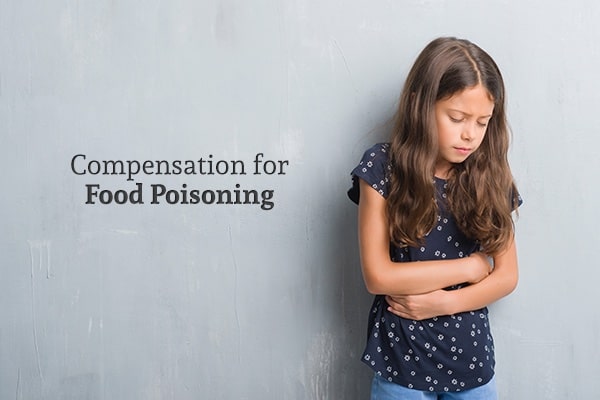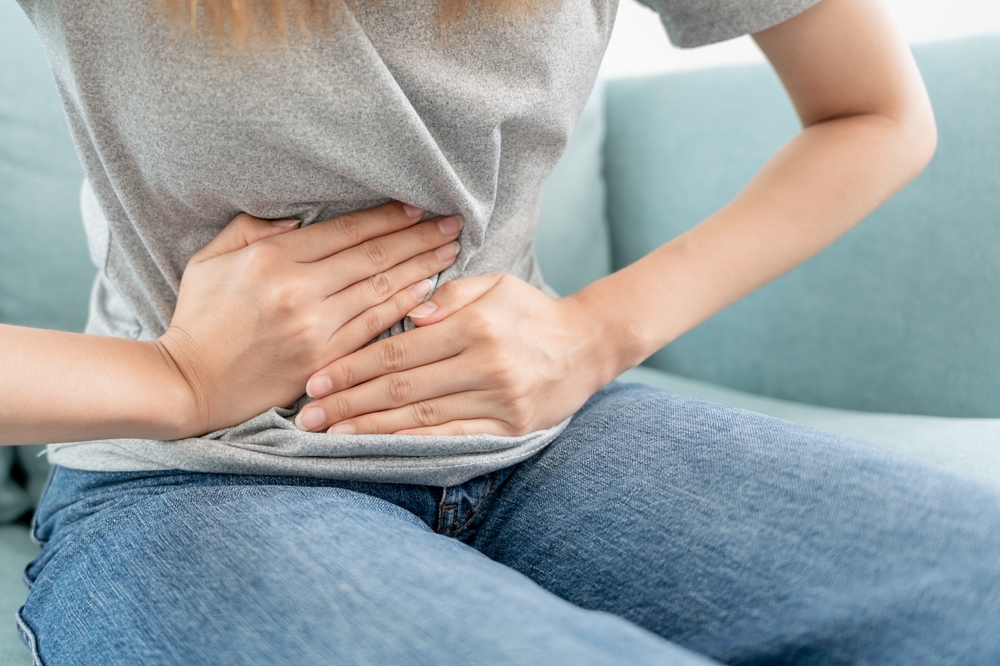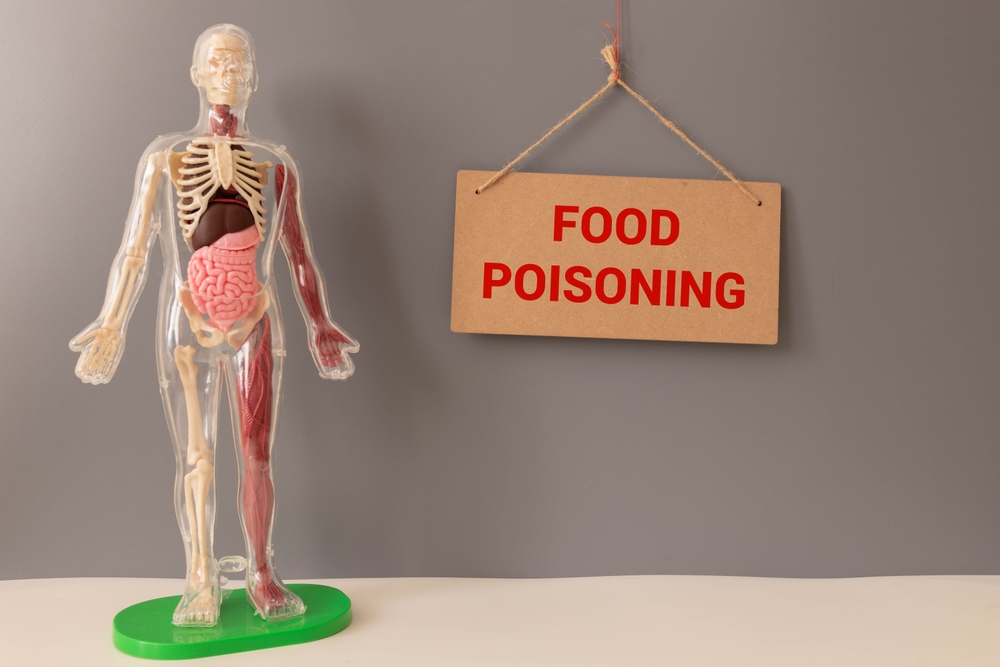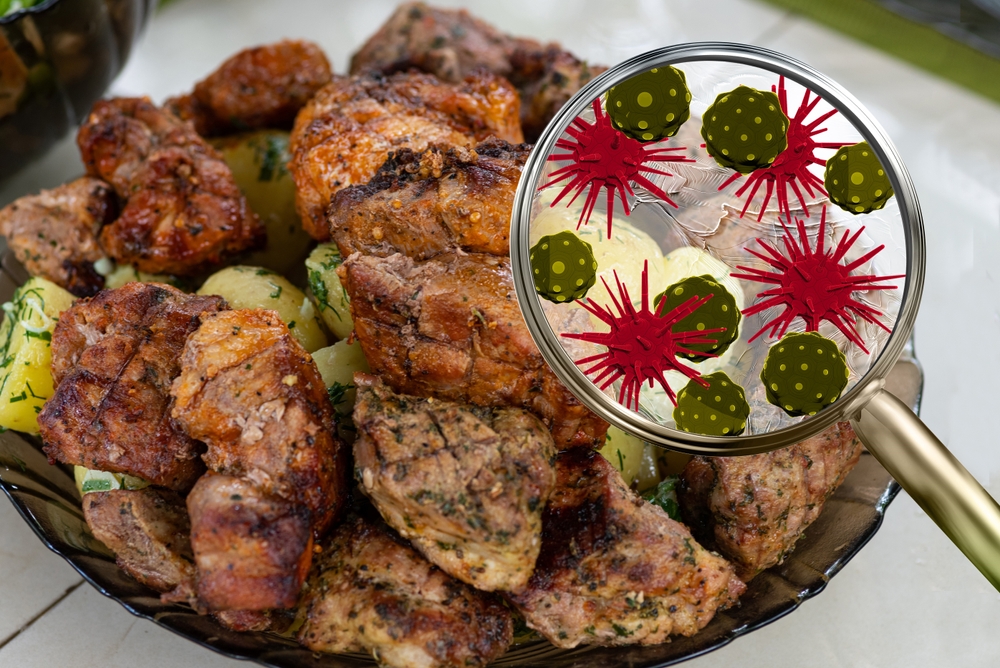
Yes, it is often possible to get compensation for food poisoning if you can show that a restaurant, grocery store, or food producer was negligent and that their carelessness directly caused your illness.
A simple stomach ache after a meal is one thing, but a serious foodborne illness can lead to overwhelming medical bills, lost time from work, and significant pain and suffering. If you contracted a foodborne illness, a food poisoning attorney can help you hold the responsible parties accountable and pursue the compensation you deserve through a personal injury claim.
Key Takeaways about Compensation for Food Poisoning
- A person who suffers from a foodborne illness caused by another party’s negligence may be eligible for financial compensation.
- Proving a food poisoning claim requires establishing a clear link between the contaminated food and the resulting sickness through evidence like medical records and lab tests.
- Potentially liable parties can include restaurants, food manufacturers, distributors, and grocery stores in the “chain of distribution.”
- Compensation, known as damages, can cover economic losses like medical expenses and lost wages, as well as non-economic losses like pain and suffering.
- Texas law sets a time limit, known as a statute of limitations, for filing a personal injury lawsuit, making it important to act promptly.
Understanding Food Poisoning: More Than Just a Stomach Ache

The term “food poisoning” often brings to mind a rough 24 hours of discomfort. However, a true foodborne illness can be a severe and even life-threatening medical event. These illnesses occur when you consume food contaminated with harmful bacteria, viruses, parasites, or toxins.
While some cases are mild, others caused by dangerous pathogens like E. coli, Salmonella, and Listeria can lead to hospitalization, long-term health complications, or worse. The symptoms can vary widely depending on the contaminant, but some of the most common signs include:
- Nausea and vomiting
- Diarrhea (which may be bloody)
- Severe abdominal cramps and pain
- Fever and chills
- Dehydration and weakness
These symptoms aren’t just unpleasant; they are signs that your body is fighting a serious infection that can have lasting consequences.
Who Is Responsible When You Get Sick? Establishing Liability
Food poisoning generally falls under the category of defective product liability. There are three separate legal doctrines that help courts decide who is at fault for someone getting food poisoning from contaminated food:
Strict Product Liability
In a strict product liability case, the plaintiff is not required to present evidence that the manufacturer or supplier of the contaminated food was not careful when making or distributing the product. Instead, the plaintiff has to show that the food product they ate was contaminated and that the contamination was the cause of their illness. If they can show evidence of this, then the liability will fall on the manufacturer or the suppliers, depending on the court’s ruling.
Negligence
Restaurants and grocery stores in Tarrant County have a legal duty to handle, store, and prepare food safely. When they fail in this duty, they can be held responsible for the harm that results. Proving you are owed compensation for food poisoning often involves showing that the establishment was careless in some way.
Common examples of negligence that can lead to food contamination include:
- Improper Temperature Control: Failing to keep hot foods hot and cold foods cold, allowing bacteria to multiply rapidly.
- Cross-Contamination: Using the same cutting board or utensils for raw meat and ready-to-eat foods like salad greens.
- Poor Employee Hygiene: Employees failing to wash their hands properly or working while they are sick.
- Using Expired or Tainted Ingredients: Knowingly serving food that is past its expiration date or shows signs of spoilage.
Any of these failures can create a dangerous environment where pathogens can thrive and ultimately cause serious illness.
Breach of Warranties
Certain regulations set the minimum standards for food products being sold in the United States. If the contamination of your product was due to a breach of these regulations or the company’s own warranty – such as a freshness guarantee – then the manufacturer may be liable. An example of such a breach is an expiration date that was labeled incorrectly.
Proving Your Food Poisoning Case

One of the biggest challenges in a food poisoning case is proving the connection between your illness and a specific meal or food product. Insurance companies for large restaurant chains or grocery stores will often argue that you could have gotten sick anywhere. To build a strong claim, you need solid evidence.
The two critical elements you must prove are:
- The food you ate was contaminated.
- The contaminated food was the direct cause of your illness.
Gathering the right evidence is essential for linking your sickness to the source. Key pieces of evidence in a food poisoning case often include:
- Medical Records: A diagnosis from a doctor is crucial. Your medical chart should document your symptoms and the timeline of your illness.
- Positive Lab Results: The strongest evidence is often a stool sample that tests positive for a specific pathogen, like Salmonella or E. coli. If public health officials can match that strain to a known outbreak, your case becomes even stronger.
- Leftover Food: If you have any leftovers of the suspect meal, preserving them by freezing them in a sealed bag can allow for laboratory testing.
- Proof of Purchase: Keep your receipt or have a credit card statement that shows when and where you purchased the food.
Connecting your illness to a specific source can be difficult, but taking these steps can provide the foundation needed to pursue a personal injury claim for compensation.
What Kind of Compensation for Food Poisoning is Available in Texas?
If you can prove that another party’s negligence caused your illness, you may be entitled to recover damages. In the legal world, damages refer to the money awarded to an injured person to compensate them for the harm they have suffered. In Texas, these damages are typically broken down into two main categories: economic and non-economic damages.
Economic Damages: Tangible Financial Losses
Economic damages are intended to reimburse you for the direct financial costs associated with your illness. These are losses that can be calculated with receipts, bills, and pay stubs.
Common examples of economic damages in a food poisoning case include:
- Medical Expenses: This covers everything from your emergency room visit and hospital stay to prescription medications, follow-up appointments, and any future medical care you may need.
- Lost Wages: If your illness forced you to miss work, you can be compensated for the income you lost.
- Loss of Earning Capacity: If the illness causes long-term complications that affect your ability to earn a living in the future, you may be compensated for that loss.
These damages are meant to make you financially whole again, as if the illness never happened.
Non-Economic Damages: The Personal Impact
Non-economic damages are designed to compensate you for the intangible, personal losses that don’t have a specific price tag but are just as real. A serious foodborne illness is not just a financial burden; it takes a significant physical and emotional toll.
These damages can include compensation for:
- Pain and Suffering: This acknowledges the physical pain, discomfort, and general suffering you endured because of the illness.
- Mental Anguish: This addresses the emotional distress, anxiety, and trauma that can accompany a severe illness and recovery process.
- Loss of Enjoyment of Life: If the illness or its aftereffects prevent you from participating in hobbies, activities, or family events that you once enjoyed, this damage category applies.
While no amount of money can erase the experience, non-economic damages are a way for the legal system to recognize the profound personal impact of the injury. It’s also important to know that Texas has a time limit for filing a personal injury claim, known as the statute of limitations. According to Texas law, you generally have two years from the date of the injury to file a lawsuit.
Why You Shouldn’t Handle a Food Poisoning Claim Alone

Trying to get fair compensation for food poisoning on your own can be incredibly challenging. You will likely be going up against a large corporation—be it a national restaurant chain, a grocery conglomerate, or a food processing company—and its team of experienced lawyers and insurance adjusters. Their primary goal is often to protect their brand and pay out as little as possible.
They may argue that you can’t prove their food made you sick or that your claim isn’t worth very much. This is where having a dedicated personal injury attorney on your side can make all the difference. An attorney acts as your advocate, leveling the playing field and fighting for your best interests.
A lawyer can handle all the complex aspects of your case, allowing you to focus on your recovery. Some of the key roles an attorney plays include:
- Conducting a Thorough Investigation: They can work to secure evidence, interview witnesses (such as other sickened patrons), and review health department reports.
- Hiring Necessary Professionals: They may consult with food safety professionals to analyze how the contamination occurred and with medical professionals to fully understand the extent of your injuries.
- Calculating Your Total Damages: An attorney can accurately calculate all of your past, present, and future losses to ensure you are demanding a fair amount.
- Negotiating with the Insurance Company: They are skilled negotiators who can counter lowball settlement offers and argue effectively on your behalf.
- Taking Your Case to Court: If the other side refuses to offer a fair settlement, an attorney can file a lawsuit and represent you in court.
Having a knowledgeable legal professional in your corner ensures your rights are protected every step of the way.
Compensation for Food Poisoning FAQs
Here are answers to some common questions that arise when considering a claim for a foodborne illness.
While having a sample of the contaminated food is very helpful, it is not always necessary to have a successful claim. Strong evidence like a positive medical diagnosis for a specific pathogen, combined with proof you ate at a certain location and reports of others getting sick, can still build a compelling case.
In Texas, the statute of limitations for most personal injury cases, including those for food poisoning, is two years from the date the injury occurred. It’s crucial to speak with an attorney well before this deadline to ensure you don’t lose your right to seek compensation.
Yes. Grocery stores are part of the chain of distribution and have a responsibility to sell food that is safe for consumption. If they sell a pre-packaged product that is contaminated or if their own food handling practices (e.g., in the deli or produce section) lead to illness, they can be held liable.
It can make a case more challenging, but it doesn’t make it impossible. A single case of food poisoning can still be traced back to negligence. An experienced attorney can investigate to see if other, unreported cases exist or build your claim based on your medical evidence and the establishment’s food safety record.
Most personal injury law firms handle cases on a contingency fee basis. This means you do not pay any attorney’s fees out of your own pocket. The law firm is only paid a percentage of the settlement or verdict if they successfully win your case for you.
Contact a Dedicated Personal Injury Attorney Today

Recovering from a serious foodborne illness is a difficult journey, and you should not have to bear the financial burden caused by someone else’s carelessness. At Branch & Dhillon, P.C., our attorneys are passionate about fighting for the rights of injured individuals in Arlington and across Tarrant County. We understand the physical, emotional, and financial toll an unexpected injury can take on you and your family.
We are here to handle the legal details of your case so you can focus on what matters most: your health. If you or a loved one has suffered from food poisoning, contact us today at (817) 533-3430 or through our online form for a free, no-obligation consultation to discuss your case and learn how we can help.

